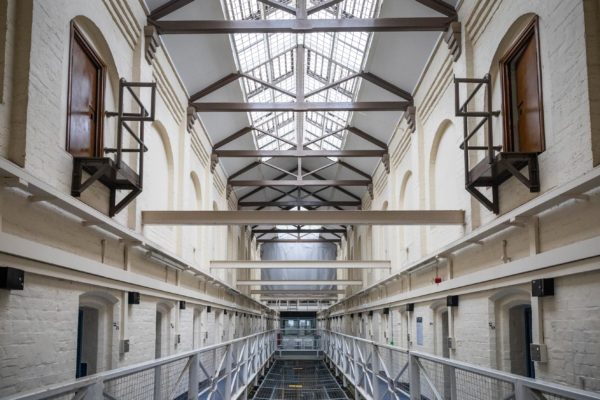Dangerous and influential terrorists are to be separated in specialist prison units, the Prime Minister has announced.
The plans come as part of an approach to clamping down on terrorist activity in jails in England and Wales, following the publication of a landmark review carried out by Jonathan Hall QC – the Government’s Independent Reviewer of Terrorism Legislation.
A new £1.2 million team will identify and target the most influential and charismatic terrorists, so they can be moved to one of the Prison Service’s three ‘Separation Centres’ – away from the main prison population.
In line with Jonathan Hall’s recommendation, the process for referring prisoners to the centres will also be strengthened against potential legal challenge. At the same time, the Government’s new Bill of Rights will limit terrorists’ ability to bring trivial claims against their treatment under the Human Rights Act.
Meanwhile, £6 million will be invested to expand ‘Close Supervision Centres’, where the most physically violent offenders can be held – including terrorists. This will prevent their potential recruitment to extremist causes.
Since the terror attacks of 2019 and 2020, the government has delivered the largest overhaul of terrorist sentencing and supervision in decades in order to keep the public safe. This includes ending the automatic early release of terrorist offenders and tougher sentences for the most serious offences.
In his report, Jonathan Hall praised the substantial investment made by the government in tackling terrorism in prisons.
Since 2017, 32 terrorist plots have been uncovered and intercepted by the Security Service MI5 and Counter Terrorism Policing
Despite this, terrorism remains an ever-present and evolving threat, with the UK’s national threat level set at substantial following a number of devastating attacks, including at Fishmongers’ Hall, Streatham, Reading and the first attack inside a British prison at HMP Whitemoor.
The government has taken major steps to clamp down on terrorist activity behind bars and keep the public safe – with over 200 prisoners convicted of terrorist offences in the estate at any one time, and a similar number considered a terrorist risk.
Separation Centres and Close Supervision Centres are limiting the interactions of terrorist offenders and stringent monitoring of communications has been introduced to intercept further intelligence, networks and plotting.
A specialist training programme has also equipped 15,500 of our frontline prison officers to identify and challenge terrorist behaviour.
At the same time, the Counter-Terrorism and Sentencing Act, which became law in 2021, represented the largest overhaul of terrorist sentencing and monitoring in a generation. The new Serious Terrorism Offence introduced a 14-year minimum jail term and minimum licence period of seven years. The Act also widened the range of offences classed as terror-connected and increased maximum penalties for certain terrorism offences.

